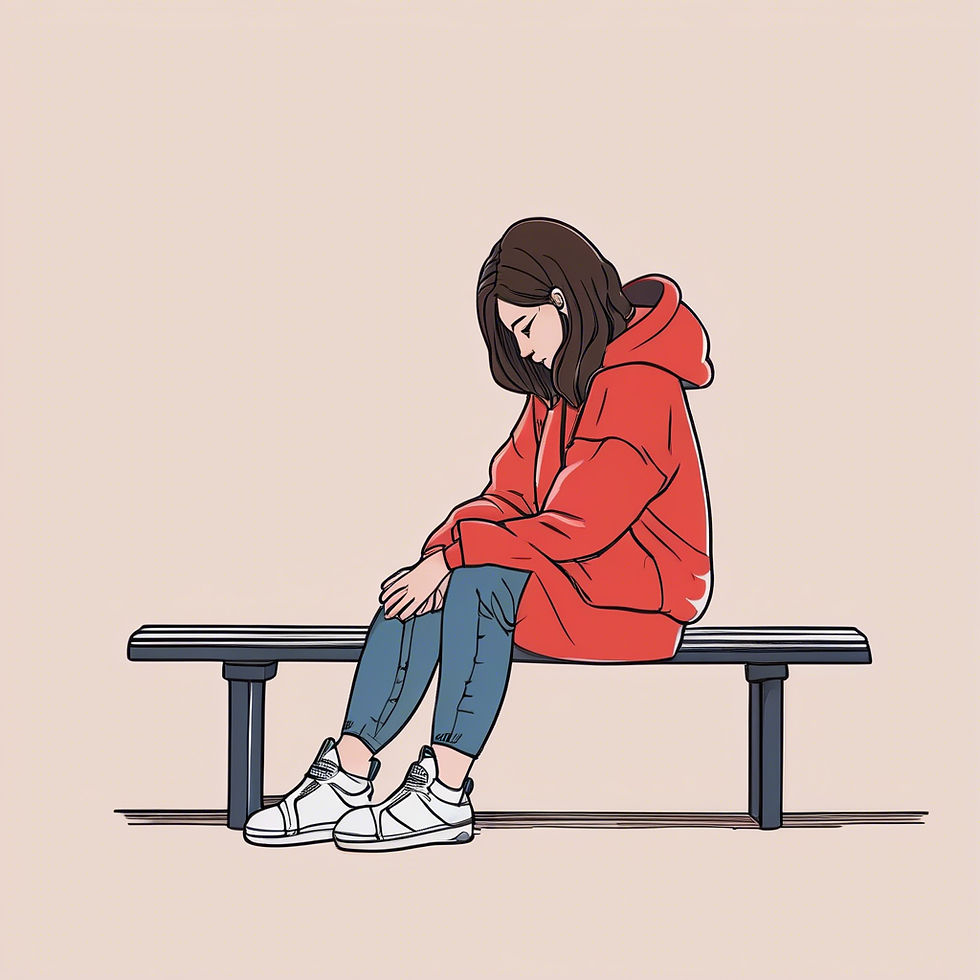The Loneliness Epidemic Among Gen Z (And What Can Be Done About It)
- Florence Team
- Jun 15, 2025
- 3 min read
"“I have hundreds of followers but still feel completely alone.”
This isn’t just a feeling—it’s a global mental health concern. The most connected generation in history is also the loneliest. And the science proves it.

What Is the Loneliness Epidemic?
Loneliness isn't just being alone—it's the gap between desired and actual social connection. According to a 2023 study by Cigna, 79% of Gen Z (ages 18–26) reported feeling lonely, the highest of any generation.
This loneliness isn't a passing phase. It’s affecting emotional well-being, cognitive function, physical health, and even lifespan. The U.S. Surgeon General recently called loneliness a “public health crisis”—on par with smoking and obesity.
The Science: How Loneliness Impacts the Brain & Body
Chronic loneliness doesn’t just feel bad—it’s biologically harmful. Studies show:
Loneliness increases cortisol, the stress hormone, which over time damages the immune system and increases inflammation.
It’s linked to a 29% higher risk of heart disease and a 32% higher risk of stroke (Harvard Health Publishing).
Social isolation is associated with a 26% increased risk of premature death, according to a 2020 meta-analysis in Perspectives on Psychological Science.
Why Gen Z Feels So Alone (Despite Being So Connected)
Some key reasons this generation is more vulnerable:
Digital connection ≠ emotional connectionConstant scrolling, curated lives, and superficial likes can leave Gen Z feeling invisible in real life.
Pandemic social delaysCOVID-19 disrupted critical years of emotional and social development for Gen Z, leading to social anxiety and disconnection.
Decline in deep friendshipsSocial media encourages breadth over depth. But what we really need is meaningful, face-to-face bonds.
5 Practical Ways Gen Z Can Combat Loneliness
Here are science-backed strategies that actually help reduce loneliness—and foster genuine connection:
1. Build "Small Circles" Over Big Networks
Studies show that a few close relationships have more impact than dozens of shallow ones. Prioritize regular contact with 2–3 trusted friends, rather than trying to stay visible to everyone.
🔹 Tip: Start a weekly “real talk” check-in with a friend—phone, voice notes, or face-to-face.
2. Replace Doomscrolling with “Micro-Connections”
Instead of endlessly scrolling TikTok or Instagram, send a thoughtful message to someone you care about. Even brief check-ins can boost oxytocin (the bonding hormone).
🔹 Tip: Use the “1–1–1 Rule”: message 1 friend, like 1 meaningful post, and comment 1 genuine compliment each day.
3. Join Intentional Communities (Online or Offline)
Find groups that share your interests—mental health spaces, hobby clubs, or activist circles. Meaningful belonging builds trust and emotional resilience.
🔹 Tip: Try apps like Meetup, Geneva, or Discord communities focused on shared values or hobbies.
4. Practice Self-Compassion
Loneliness can spiral into self-blame. Practicing self-compassion lowers depression and anxiety, which improves how you engage socially.
🔹 Tool: Use a self-compassion meditation from Dr. Kristin Neff or write a letter to yourself as if to a friend.
5. Get Professional Support Without Shame
If feelings of isolation persist, seeking therapy is a strength—not a weakness. There are Gen Z-friendly platforms like BetterHelp, Therapy for Black Girls, or Manastha (India-based).
Final Thoughts
Loneliness isn’t just “in your head”—it’s real, painful, and measurable. But it's also changeable.
By taking small, consistent steps toward meaningful connection, Gen Z can rebuild the community it craves—one conversation, one check-in, one honest moment at a time.
You’re not alone. And you don’t have to stay that way.
Additional In-Depth Sources
Cigna U.S. Loneliness Index
Harvard Health: The Deadly Risks of Loneliness
APA: Loneliness and Health Risks
Surgeon General’s Advisory on Loneliness (2023)



Comments